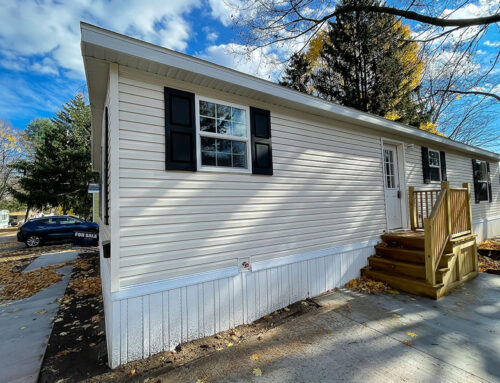When my Aunt Lily and I first starting talking about real estate late last year, our chats centered on the best places to buy investment property in New Jersey. She’s approaching retirement but doesn’t necessarily want to stop working. Originally thinking she might leave New York, we started looking at Weehawken and Bayonne, among other towns, where she could live and invest in real estate after retirement. But, after giving it much thought, she’s decided to return to her roots and head north to Rochester—a decision the family loves since many of us still call it home—and invest in the place she was born and raised.
Excited about the prospect of investing in the city where she grew up, my aunt started talking investment strategy before she even started packing. She’d read that the City of Rochester holds tax foreclosure auctions and that bidding starts as low as $400. At that price, she wondered if she shouldn’t go ahead and buy property at one of the upcoming auctions to get her new career going. I told her that she should wait until we could go over the ins and outs of buying from the auction. Plus, she had a retirement party to plan.
Buying Property from the City of Rochester Tax Foreclosure Auction
When we did finally review the investing opportunities through the City of Rochester tax foreclosure auction, she started to feel a little lukewarm about it—even though the idea behind it is admirable. Vacant, abandoned, and decrepit homes that cause or contribute to neighborhood blight often get acquired by the City of Rochester when property owners can’t or won’t return their homes to good use. The city wants these properties to be brought back to code, fully renovated, and occupied—or resold—to help breathe some life into and generate more tax revenue from, areas that may be suffering from low property values and crime. So, a few times a year, the city holds a tax foreclosure auction, offering these homes to the highest bidder.
For investors, these tax foreclosure auctions provide an opportunity to buy distressed property cheaply enough so that even a full-scale renovation has the potential to create good returns. And, that’s an important point to consider. Since these homes have been sitting vacant and many are uninhabitable or even dangerous, they usually need a lot of work. But, if bought at the right price, a major fixer can look like a great deal—which is why hundreds of people often show up to bid. If you’re thinking about being one of them because you’re looking for investment properties to flip like my Aunt Lily, here’s what you need to know:
To begin, you will need to pre-register for any upcoming auction you plan on attending. Pre-registration starts and ends early for each auction, so it’s critical you visit the city’s website to determine what those dates are and adhere to them. If you don’t pre-register, you do not get to bid. As a part of the pre-registration process, you’ll also need to show proof of funds in the amount of $10,000 for each property that you expect to bid on, up to $39,000 for a maximum of three properties. You cannot have any code violations or owe any back taxes on properties within Rochester city limits either, otherwise you will be prohibited from bidding. But, the city reserves the right to withhold approval for whatever reason before the auction begins.
Prior to the auction, the city recommends you do as much research as possible in preparation for bidding. The city holds regular informational meetings about the auction process itself, where you’re encouraged to ask questions if you’ve never bid before. And, unlike a lot of other cities and county real estate auctions, you can also schedule a home inspection with your contractor to help estimate the cost of the rehab and determine what—or if—you should bid for the property. Since these homes are sold as-is, it’s critical you don’t skip this opportunity. Doing so could land you with a money pit that sinks any potential returns if you win the bid and move forward with the sale.
Of course, winning the bid and backing out of the sale will leave you slightly better off. You’ll just go home without your deposit. That deposit, which is $1,000 for each property that you plan to bid on must be paid in the form of cash or a cashier’s check only and immediately at the close of bidding. So, on the day of the auction, come prepared.
If you win a bid, things start to move pretty fast. Within one week, you will have to pay the city the balance plus assessed taxes and the deed recording fee. If the property is a small multi-family, rather than a single-family residence, you’ll also have to submit a development proposal to be approved at the discretion of the City Council. If the investment property is a single-family home, proof that you’ve applied for a Certificate of Occupancy to bring the house back to code is required during this time. If you fail to comply with any of these terms of sale—or any others that might have been announced prior to bidding—you will forfeit the property and your deposit.
Unfortunately, even if you win the bid and comply with all terms of sale, there is no guarantee that you will be given possession of the property. The City Council still has to approve the sale and there’s no way to know how long that could take. If and when they do issue an approval, it’s in your best interest to move forward as quickly as you can. After changing the locks, you must provide the city with proof of property insurance for flipping houses before you begin the rehab. And, though you get up to 12 months to bring the property back to code, finish the renovation, and obtain the Certificate of Occupancy, it could still take nothing short of a miracle to make that happen. Major rehabs—which many of these houses are—frequently take up to nine months to complete and that’s under the best of circumstances. If the council approves the sale during New York’s harsh winter months, you might have to hold off on starting repairs until the spring. So, not only do you risk falling behind on the city’s renovation timeline, your holding costs can really add up.
In the end, buying from this tax foreclosure auction isn’t as harrowing as some of the others out there, but there are still enough what-ifs to put this deal-finding strategy at the bottom of my list. You don’t have to attend an auction anyway to find distressed homes that have the potential to yield good returns. Instead, you could buy directly from homeowners before they’ve forfeited or lost their properties to any government program and still contribute to the revitalization of struggling Rochester neighborhoods. As long as you have a way to generate leads on properties that the homeowners need to sell fast, your chances of getting great deals could be pretty good.
Get a Better Deal Directly from Rochester Homeowners
Born and raised in Rochester, like my aunt, I take a lot of pride in helping my community where I can—and, that includes my work as a real estate investor. That’s why I’d much rather buy properties directly from distressed homeowners and not from the tax foreclosure auction. I applaud the city’s intentions and I don’t doubt that neighborhoods have benefitted from their efforts. But, government red tape makes my work as an investor harder than it needs to be and it certainly doesn’t help homeowners. In my line of work, I want everyone to benefit wherever possible. That’s why I became an independently owned and operated HomeVestors® franchisee.
As a franchisee, I have access to a variety of marketing tools and resources designed to reach distressed homeowners directly so that they know who to call before the city comes calling. The nationally-known and trusted “We Buy Ugly Houses®” marketing campaign, which can be recognized and heard almost everywhere, is one example. When a distressed homeowner in Rochester hears an ad over the radio or drives by a billboard, they know who to turn to for help—HomeVestors® franchisees like me. So, I get a good deal on a potentially great investment and they get some help before losing it all.
Interested in helping Rochester neighborhoods, homeowners, and your bottom line? Then, take the time to contact HomeVestors® about franchising opportunities today.
Each franchise office is independently owned and operated.
Contact
"*" indicates required fields





